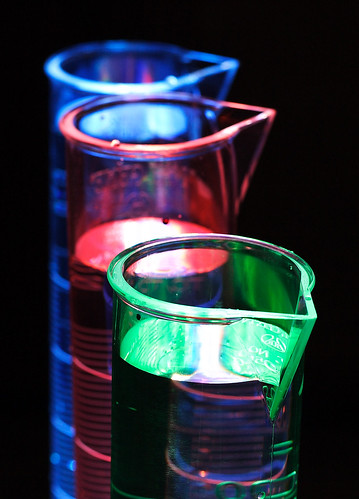
One interesting observation that I make when I examine our course offerings, is that the large majority of our distance courses are humanities-based. The science courses are few and far between. The largest barrier to completing a science degree via distance is the completion of laboratory components. This is true in many online colleges and universities. It’s far easier to offer science labs in a residential setting than it is to offer then by distance. Despite the challenge, it doesn’t mean it’s impossible. Consider an introductory chemistry course for a moment. In my view, there are basically four possible options available to course designers:
- Construct a condensed residential lab offered in the summer. Distance students can travel to the university for 1 or 2 weeks and complete a series of experiments at an accelerated pace. Note that arrangements could be made to deliver this condensed laboratory at the closest college or university if the student resides a prohibitive distance from the hosting university.
- At home labs using a prepared lab kit. The course development team can prepare a kit that contains volumetric glassware, pH testing equipment, small quantities of known salts and chemicals, etc. This kit can provide stand-alone equipment for students to perform experiments at home.
- At home labs using kitchen science. The course development team can design experiments that include equipment and materials that students either have in their home already or can easily purchase locally.
- Computer laboratory simulations. In recent years, some companies have come out with relatively inexpensive computer simulation packages that can be used to simulate laboratory experiments on a computer.
Each of the four options above has its pros and cons. I won’t outline them all here (maybe I will save them for a future blog post. Hee hee!). However, I wanted to take this opportunity to share with you one resource that I found on the topic of kitchen science for chemistry labs. Doris Kimbrough of the University of Colorado at Denver and Jim Reeves of the University of North Carolina at Wimington have shared several examples of kitchen chemistry in action. Specifically, they share three different packages of distance learning laboratories, dubbed the 'Anytime Anywhere Chemistry Experience', for us to examine:
- Web-based materials for Science Majors (10 experiments)
- Text-based materials for Science Majors (9 experiments)
- Text-based materials for Non-science Majors (9 experiments)
Each experiment in these packages is designed with learning objectives, a list of equipments and materials that the student must purchase, an introduction that contains the theory behind the experiment, a detailed procedure, and a series of questions that need to be answered. (Sometimes, an excel sheet is provided for students to type their data directly into.)
Do you have any experience in offering science labs at a distance? If so, let us know about it by leaving a comment.
 Eric's ramblings, experiences and random thoughts about e-Learning, distance education and Educational Technology.
Eric's ramblings, experiences and random thoughts about e-Learning, distance education and Educational Technology.






No comments:
Post a Comment